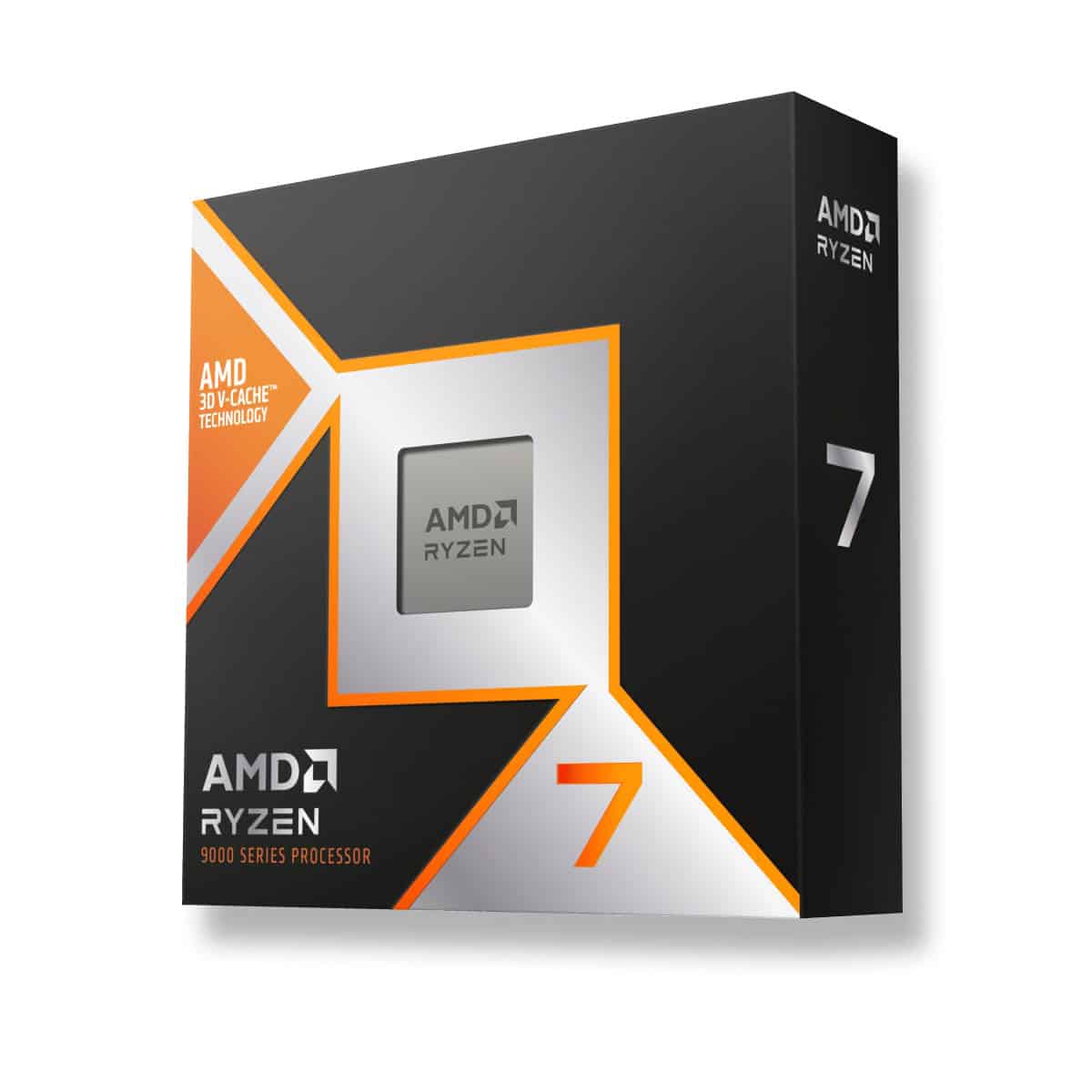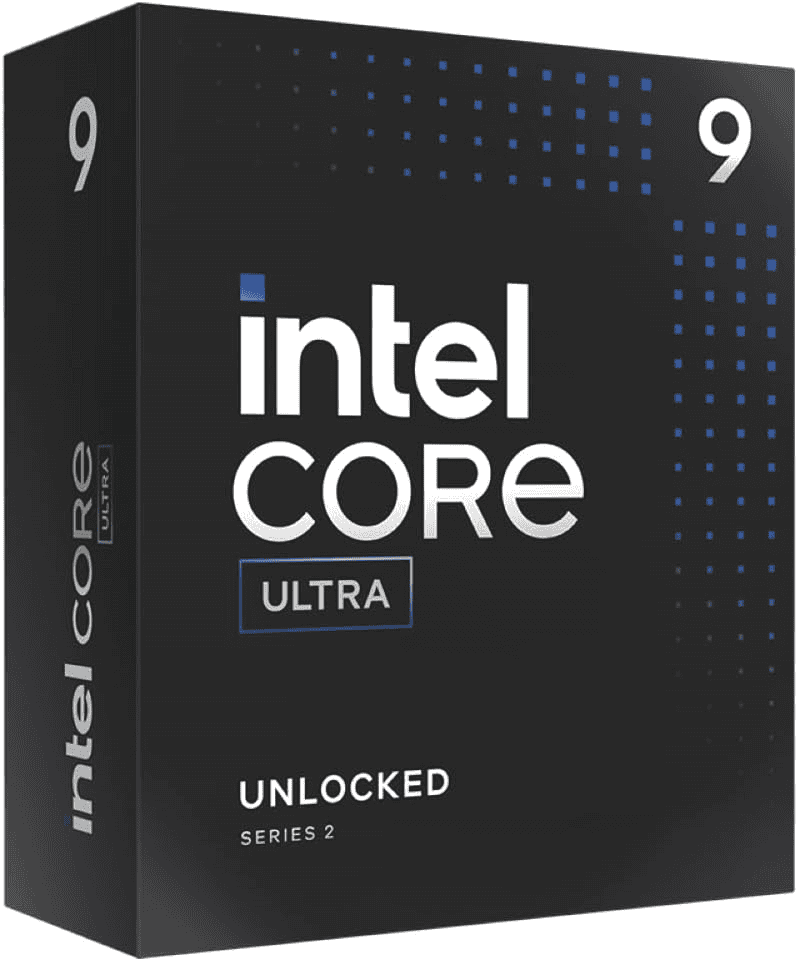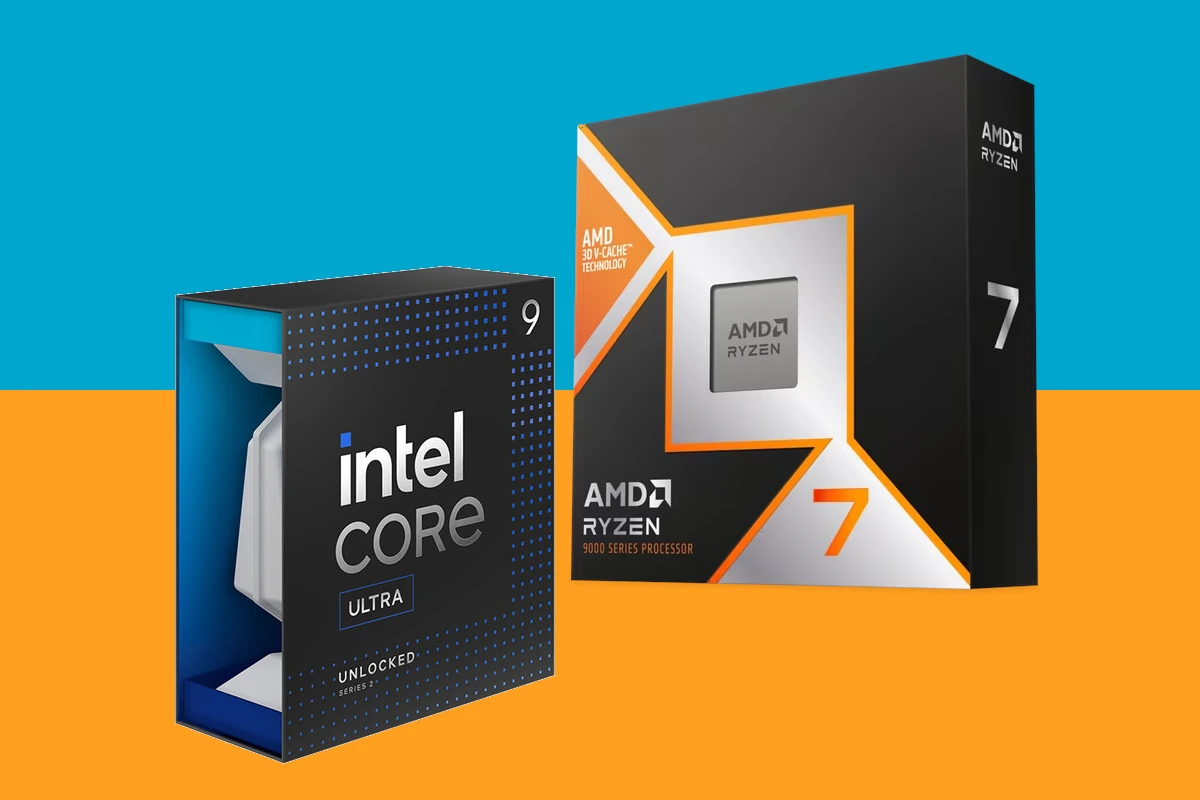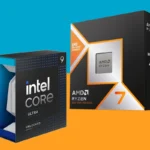Choosing the best CPU for 2025 requires careful consideration of performance, power efficiency, and emerging technologies. The CPU market continues to evolve rapidly, with Intel and AMD pushing the boundaries of processor design. Both companies are expected to release new architectures in 2025, offering significant improvements in single-threaded and multi-threaded performance.
These upcoming CPUs will likely feature smaller transistor sizes, increased core counts, and enhanced AI capabilities. This progression aims to meet the growing demands of gamers, content creators, and professionals who require powerful computing solutions. The best CPUs for 2025 will balance raw processing power with energy efficiency, providing users with optimal performance for their specific needs.
Affiliate Disclosure: ComputerCity.com is supported by its readers and our writers choose products independently. When you make a purchase through links on our site, we may earn a commission from affiliate programs.
Consumers should watch for advancements in areas such as 3D chip stacking, hybrid core designs, and integrated graphics improvements. These innovations could reshape the CPU landscape, offering new options for users across various price points and performance tiers.
| Rank | Name | Price | Core Count | Core Clock | Boost Clock |
|---|---|---|---|---|---|
| 1 | AMD Ryzen 7 9800X3D | Check Price | 8 | 4.7 GHz | 5.2 GHz |
| 2 | AMD Ryzen 7 9700X | Check Price | 8 | 3.8 GHz | 5.5 GHz |
| 3 | AMD Ryzen 9 9950X | Check Price | 16 | 4.3 GHz | 5.7 GHz |
| 4 | AMD Ryzen 5 9600X | Check Price | 6 | 3.9 GHz | 5.4 GHz |
| 5 | AMD Ryzen 9 9900X | Check Price | 12 | 4.4 GHz | 5.6 GHz |
| 6 | Intel Core Ultra 9 285K | Check Price | 24 | 3.7 GHz | 5.7 GHz |
| 7 | Intel Core Ultra 7 265K | Check Price | 20 | 3.9 GHz | 5.5 GHz |
| 8 | Intel Core Ultra 7 265KF | Check Price | 20 | 3.9 GHz | 5.5 GHz |
| 9 | Intel Core Ultra 5 245K | Check Price | 14 | 4.2 GHz | 5.2 GHz |
| 10 | Intel Core Ultra 5 245KF | Check Price | 14 | 4.2 GHz | 5.2 GHz |

CPU Powerhouses of 2025: A Performance Preview
Here’s a list of the best selling CPUs on Amazon (Source: https://amzn.to/4jmvz45):

Understanding CPU Specifications
When choosing a CPU, several key specs matter. Core count tells you how many processing units are on the chip. More cores generally mean better performance in tasks that can use multiple cores at once, like video editing or 3D rendering. Clock speed, measured in GHz, shows how fast each core can perform calculations. A higher clock speed usually means better single-core performance, important for tasks like gaming. Boost clock is the maximum speed a core can reach under heavy load.
Top CPU Contenders for 2025
Here’s a look at some of the CPUs expected to be top performers in 2025, based on available information and trends:
| Rank | Name | Core Count | Core Clock | Boost Clock | iGPU | Overclockable |
|---|---|---|---|---|---|---|
| 1 | AMD Ryzen 7 9800X3D | 8 | 4.7 GHz | 5.2 GHz | Yes | Yes |
| 2 | AMD Ryzen 7 9700X | 8 | 3.8 GHz | 5.5 GHz | Yes | Yes |
| 3 | AMD Ryzen 9 9950X | 16 | 4.3 GHz | 5.7 GHz | Yes | Yes |
| 4 | AMD Ryzen 5 9600X | 6 | 3.9 GHz | 5.4 GHz | Yes | Yes |
| 5 | AMD Ryzen 9 9900X | 12 | 4.4 GHz | 5.6 GHz | Yes | Yes |
| 6 | Intel Core Ultra 9 285K | 24 | 3.7 GHz | 5.7 GHz | Yes | Yes |
| 7 | Intel Core Ultra 7 265K | 20 | 3.9 GHz | 5.5 GHz | Yes | Yes |
| 8 | Intel Core Ultra 7 265KF | 20 | 3.9 GHz | 5.5 GHz | No | Yes |
| 9 | Intel Core Ultra 5 245K | 14 | 4.2 GHz | 5.2 GHz | Yes | Yes |
| 10 | Intel Core Ultra 5 245KF | 14 | 4.2 GHz | 5.2 GHz | No | Yes |
AMD vs. Intel: A Quick Comparison
AMD’s Ryzen CPUs have been competitive, often offering strong multi-core performance at good prices. Intel’s CPUs, on the other hand, have traditionally held an edge in single-core performance in some applications, especially older games. The table above shows AMD leading in the top spots. The X3D cache technology, as used in the Ryzen 7 9800X3D, provides a significant performance boost in certain games by storing frequently used data closer to the CPU cores. This can be a key factor for gamers. Intel’s Ultra series brings high core counts to the table, which could make them strong contenders for tasks that benefit from many cores.
Choosing the Right CPU for You
The best CPU for you depends on what you plan to do with your computer. If you’re a gamer, a CPU with a high boost clock and good single-core performance is important. The AMD Ryzen 7 9800X3D is a good choice. For content creation or other tasks that use many cores, a CPU with a high core count is better. The AMD Ryzen 9 9950X or Intel Core Ultra 9 285K might be suitable.
What to Consider Beyond Core Count and Clock Speed
Besides core count and clock speed, there are other factors to think about. TDP (Thermal Design Power) indicates how much heat the CPU produces and what kind of cooler you’ll need. The CPU socket determines which motherboards are compatible. You should also think about the CPU’s integrated graphics (iGPU), which can be useful if you’re not using a dedicated graphics card.
The Importance of a Fast SSD for Overall System Performance
While the CPU is the brain of your computer, storage speed is also very important. A fast Solid State Drive (SSD), especially an NVMe SSD that uses the PCIe interface, can significantly improve system responsiveness and loading times. Modern NVMe drives can reach read speeds of over 7,000 MB/s, which is much faster than traditional hard drives or even older SATA SSDs. This means faster boot times, quicker application launches, and smoother overall performance. Combining a powerful CPU with a fast SSD is key to a responsive and efficient system.

The CPU market is dynamic, with frequent product launches and price changes. As the central component of a computer, the CPU handles instructions and works with memory, storage, and other parts. Choosing the right CPU depends on your needs—gaming requires high speed, while tasks like video editing benefit from multiple cores.
In 2025, CPUs are expected to become even more powerful, featuring more cores, faster clock speeds, and improved energy efficiency. This translates to better performance with less power consumption. When selecting a CPU, check current reviews and benchmarks for guidance. Focus on both single-core and multi-core performance for versatility.
CPUs, made up of millions of transistors, execute program instructions and manage data flow within the system. Key components include the Arithmetic Logic Unit (ALU) for calculations, the Control Unit (CU) for instruction management, and registers for temporary data storage. CPU performance is influenced by clock speed (measured in GHz), the number of cores, and cache memory, which stores frequently used data for faster access.
As CPUs evolve, they are becoming more powerful and efficient, enabling better performance across devices like computers and smartphones. The future of CPUs promises continued advancements, but selecting the right CPU for your current needs ensures the best computing experience.
Key Takeaways
- New CPU architectures from Intel and AMD will offer improved performance and efficiency
- Advancements in chip design will likely include smaller transistors and increased core counts
- Integrated AI capabilities and enhanced graphics will be key features in 2025’s top processors
Evaluating CPU Performance and Technological Advancements
CPU performance continues to advance rapidly. New technologies and designs from Intel and AMD push the boundaries of speed and efficiency.
Understanding CPU Specifications and Features
Clock speed measures how fast a CPU runs. Higher numbers mean faster processing. Core count is also key. More cores allow better multitasking.
The Core i9-13900KS boasts a 6 GHz boost clock. This makes it great for gaming. AMD’s Ryzen 9 7950X3D uses 3D V-Cache for improved performance.
Single-threaded performance matters for many tasks. Multi-threaded performance helps with heavy workloads. Integrated graphics can eliminate the need for a separate GPU.
Leading Processors and Innovations by Intel and AMD
Intel’s 14th gen Core processors offer strong single-core speeds. The Core i7-14700K balances cost and performance well. AMD’s Ryzen 7000 series excels in multi-threaded tasks.
Future Intel chips will use new designs. Arrow Lake CPUs may bring big gains in 2025. AMD continues to refine its Zen architecture.
Both companies are moving to smaller manufacturing processes. This allows more transistors in the same space. The result is better performance and efficiency.
The Impact of Ram, Motherboards, and Chipsets
RAM speed affects overall system performance. DDR5 offers faster speeds than DDR4. But it costs more.
Motherboards determine what CPUs work with a system. Intel uses LGA 1700 sockets now. AMD has moved to AM5 for its newest chips.
New chipsets support features like PCIe 5.0. This allows faster data transfer for SSDs and graphics cards. AM5 motherboards are pricey but offer good future-proofing.
Choosing the right combo of CPU, RAM, and motherboard is key. It affects both current performance and future upgrade options.







